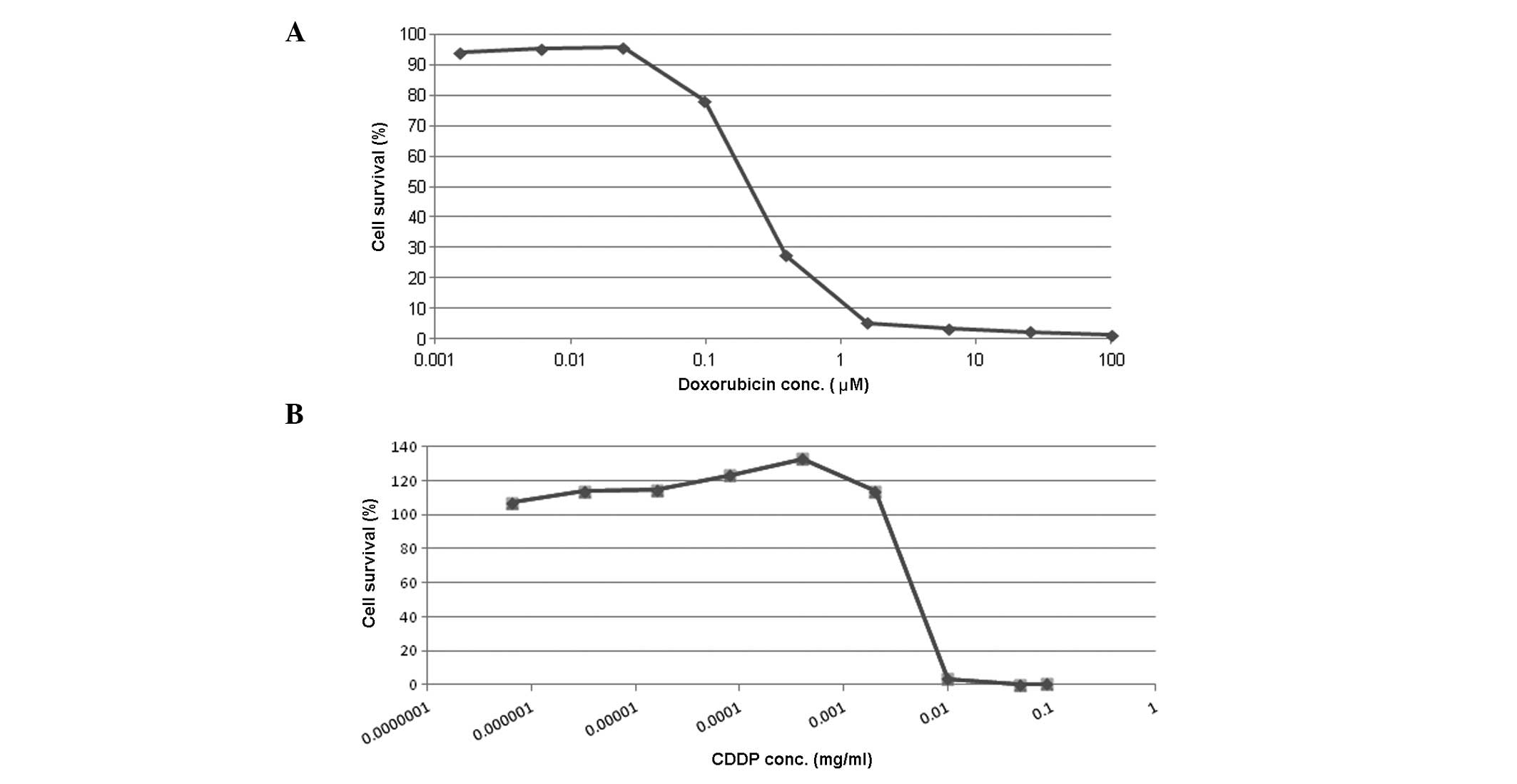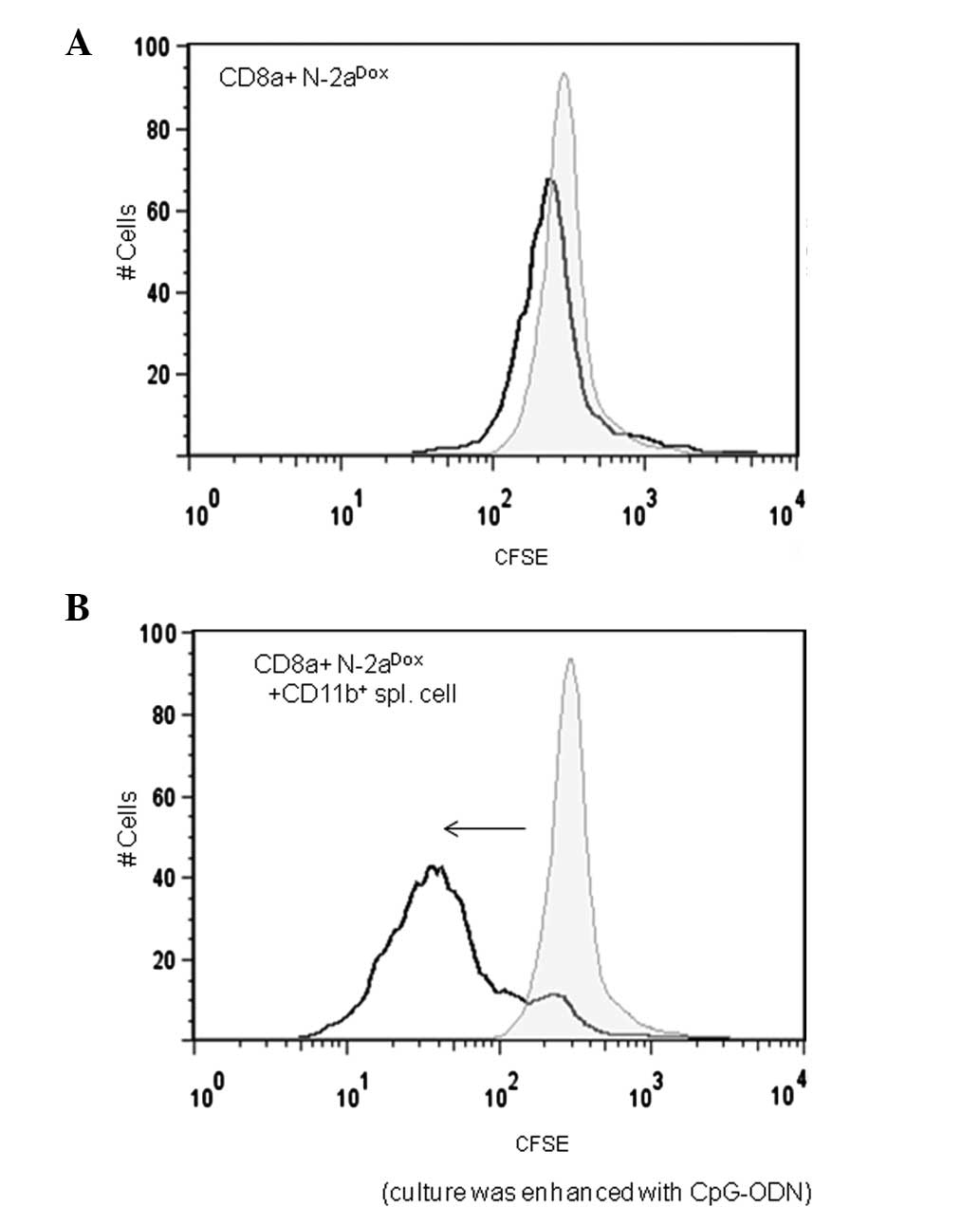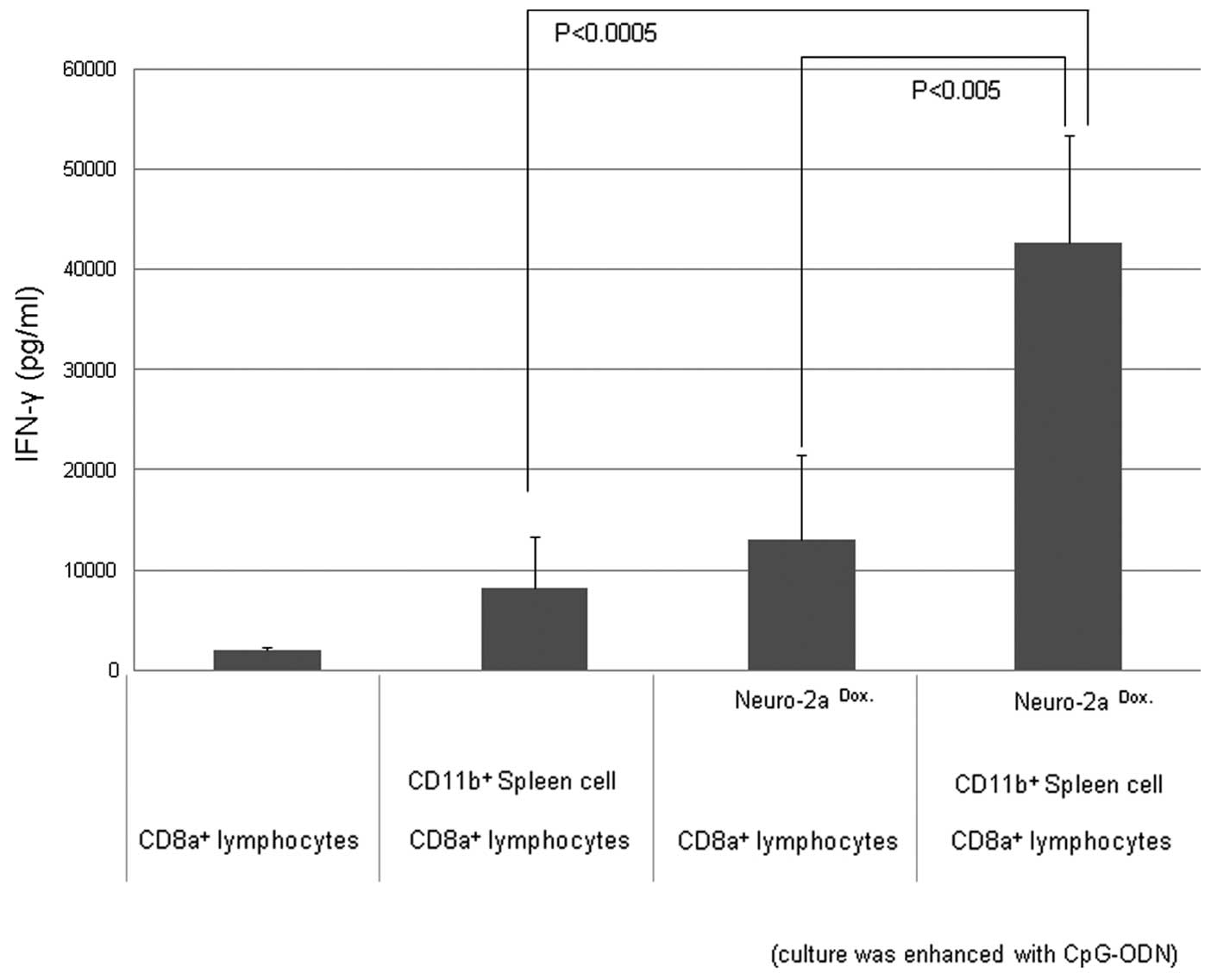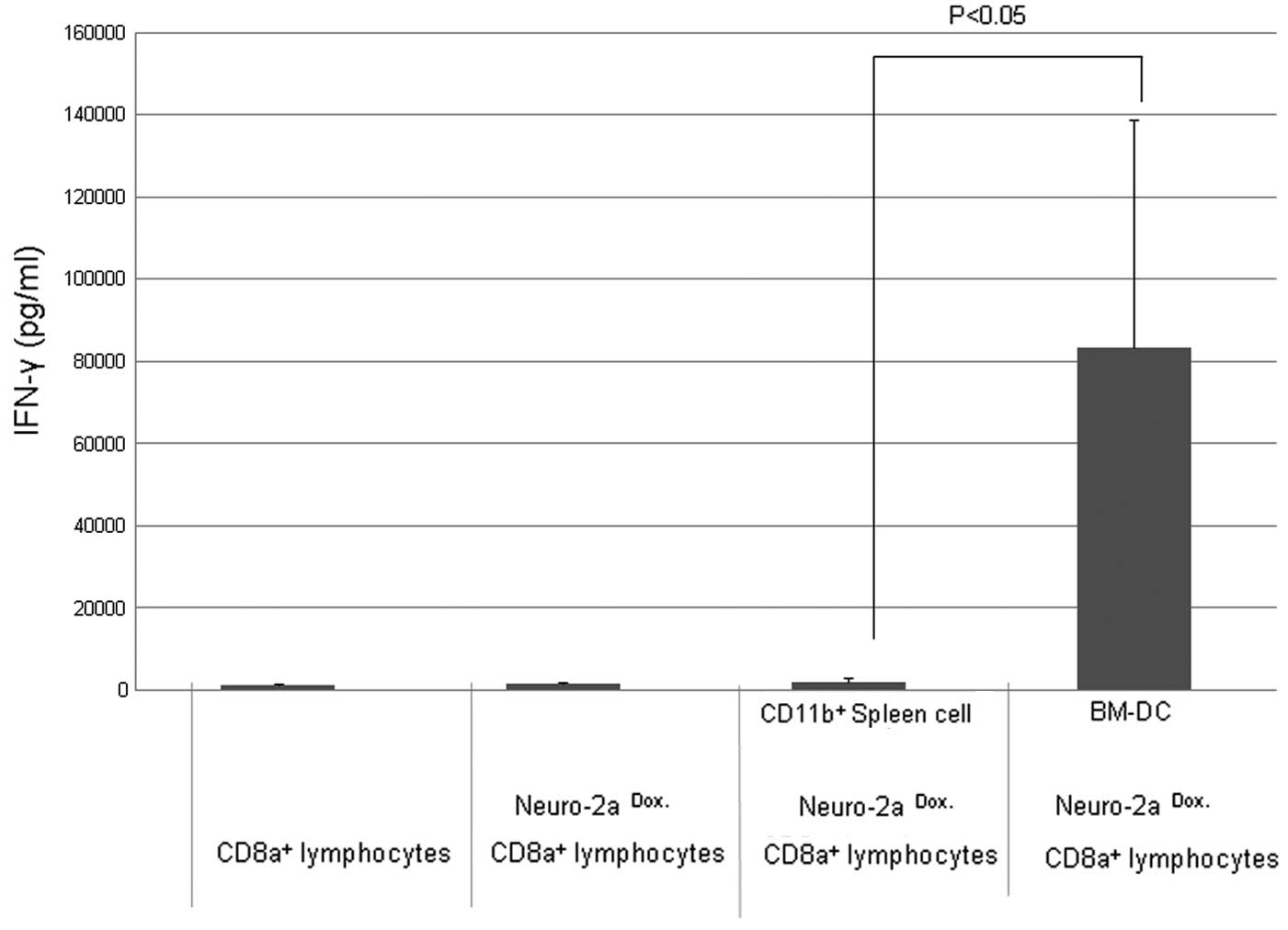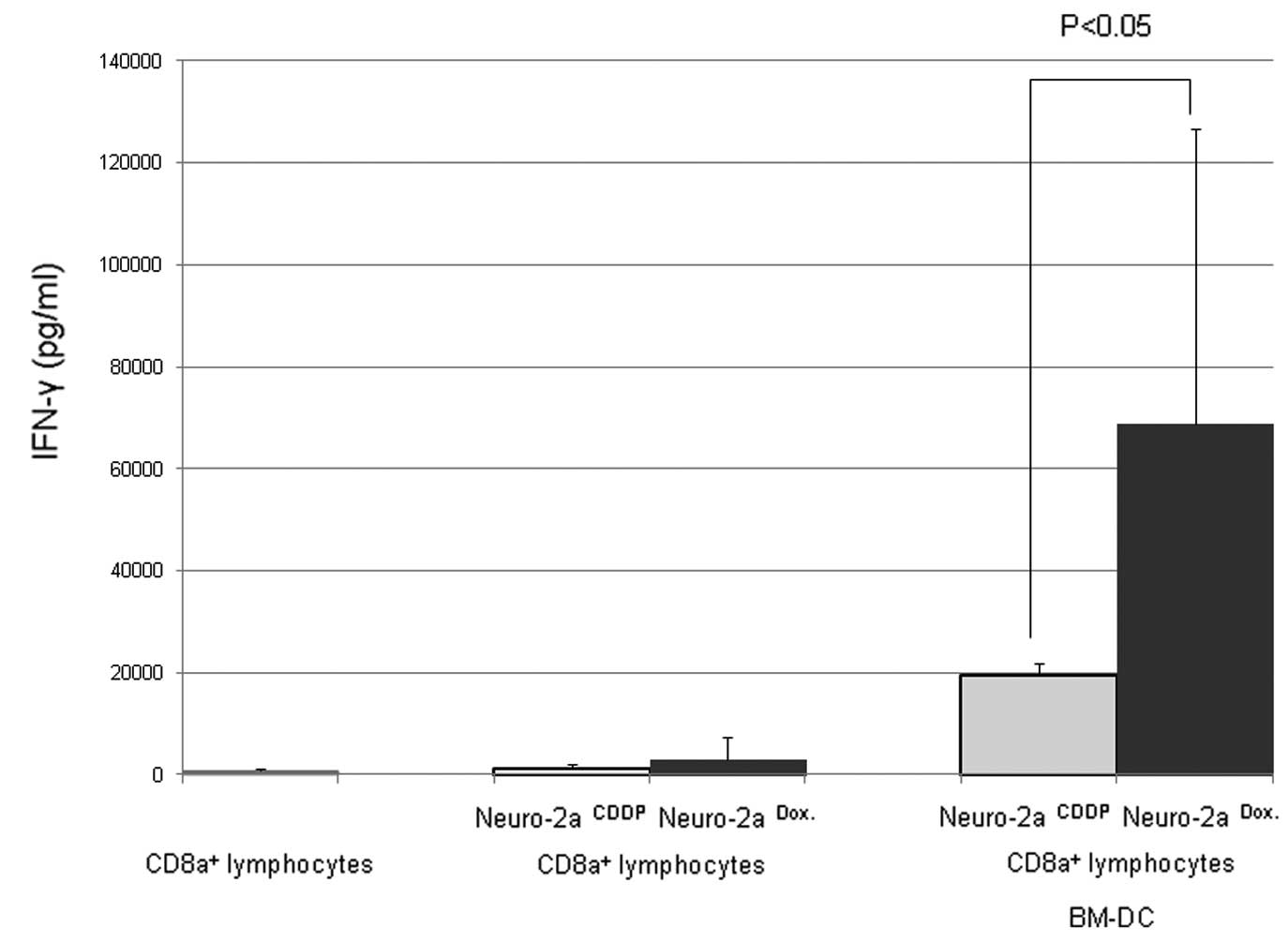|
1
|
Liu G, Wu C, Wu Y and Zhao Y: Phagocytosis
of apoptotic cells and immune regulation. Scand J Immunol. 64:1–9.
2006. View Article : Google Scholar : PubMed/NCBI
|
|
2
|
Jubinsky PT, Dickens DS and Short MK: New
roles for mononuclear phagocytes in cancer biology. J Pediatr
Hematol Oncol. 30:584–591. 2008. View Article : Google Scholar : PubMed/NCBI
|
|
3
|
Kepp O, Tesniere A, Schlemmer F, et al:
Immunogenic cell death modalities and their impact on cancer
treatment. Apoptosis. 14:364–375. 2009. View Article : Google Scholar : PubMed/NCBI
|
|
4
|
Chen G and Emens LA: Chemoimmunotherapy:
reengineering tumor immunity. Cancer Immunol Immunother.
62:203–216. 2013. View Article : Google Scholar : PubMed/NCBI
|
|
5
|
Obeid M, Tesniere A, Ghiringhelli F, et
al: Calreticulin exposure dictates the immunogenicity of cancer
cell death. Nat Med. 13:54–61. 2007. View
Article : Google Scholar : PubMed/NCBI
|
|
6
|
Martins I, Kepp O, Galluzzi L, et al:
Surface-exposed calreticulin in the interaction between dying cells
and phagocytes. Ann NY Acad Sci. 1209:77–82. 2010. View Article : Google Scholar : PubMed/NCBI
|
|
7
|
Zitvogel L, Apetoh L, Ghiringhelli F and
Kroemer G: Immunological aspects of cancer chemotherapy. Nat Rev
Immunol. 8:59–73. 2008. View
Article : Google Scholar
|
|
8
|
Tufi R, Panaretakis T, Bianchi K, et al:
Reduction of endoplasmic reticulum Ca2+ levels favors
plasma membrane surface exposure of calreticulin. Cell Death
Differ. 15:274–282. 2008.
|
|
9
|
Maris JM, Hogarty MD, Bagatell R and Cohn
SL: Neuroblastoma. Lancet. 369:2106–2120. 2007. View Article : Google Scholar : PubMed/NCBI
|
|
10
|
Maris JM: Recent advances in
neuroblastoma. N Engl J Med. 362:2202–2211. 2010. View Article : Google Scholar : PubMed/NCBI
|
|
11
|
Hara J: Development of treatment
strategies for advanced neuroblastoma. Int J Clin Oncol.
17:196–203. 2012. View Article : Google Scholar
|
|
12
|
Brodeur GM: Neuroblastoma: biological
insights into a clinical enigma. Nat Rev Cancer. 3:203–216. 2003.
View Article : Google Scholar : PubMed/NCBI
|
|
13
|
Verneris MR and Wagner JE: Recent
developments in cell-based immune therapy for neuroblastoma. J
Neuroimmune Pharmacol. 2:134–139. 2007. View Article : Google Scholar : PubMed/NCBI
|
|
14
|
Martins I, Kepp O, Schlemmer F, et al:
Restoration of the immunogenicity of cisplatin-induced cancer cell
death by endoplasmic reticulum stress. Oncogene. 30:1147–1158.
2011. View Article : Google Scholar : PubMed/NCBI
|
|
15
|
Ullrich E, Menard C, Flament C, et al:
Dendritic cells and innate defense against tumor cells. Cytokine
Growth Factor Rev. 19:79–92. 2008. View Article : Google Scholar : PubMed/NCBI
|
|
16
|
Mantovani A and Sica A: Macrophages,
innate immunity and cancer: balance, tolerance, and diversity. Curr
Opin Immunol. 22:231–237. 2010. View Article : Google Scholar : PubMed/NCBI
|
|
17
|
Sica A: Role of tumour-associated
macrophages in cancer-related inflammation. Exp Oncol. 32:153–158.
2010.PubMed/NCBI
|
|
18
|
Buhtoiarov IN, Sondel PM, Eickhoff JC and
Rakhmilevich AL: Macrophages are essential for antitumour effects
against weakly immunogenic murine tumours induced by class B
CpG-oligodeoxynucleotides. Immunology. 120:412–423. 2007.
View Article : Google Scholar
|
|
19
|
Apetoh L, Ghiringhelli F, Tesniere A, et
al: Toll-like receptor 4-dependent contribution of the immune
system to anticancer chemotherapy and radiotherapy. Nat Med.
13:1050–1059. 2007. View
Article : Google Scholar
|
|
20
|
Tesniere A, Apetoh L, Ghiringhelli F, et
al: Immunogenic cancer cell death: a key-lock paradigm. Curr Opin
Immunol. 20:504–511. 2008. View Article : Google Scholar : PubMed/NCBI
|
|
21
|
Sica A and Bronte V: Altered macrophage
differentiation and immune dysfunction in tumor development. J Clin
Invest. 117:1155–1166. 2007. View
Article : Google Scholar : PubMed/NCBI
|
|
22
|
Kuroda T, Morikawa N, Matsuoka K, et al:
Prognostic significance of circulating tumor cells and bone marrow
micrometastasis in advanced neuroblastoma. J Pediatr Surg.
43:2182–2185. 2008. View Article : Google Scholar : PubMed/NCBI
|
|
23
|
Kuroda T: Cellular kinetics of
neuroblastoma and the role of surgery. Pediatr Surg Int.
27:913–917. 2011. View Article : Google Scholar : PubMed/NCBI
|
|
24
|
Emens LA: Chemoimmunotherapy. Cancer J.
16:295–303. 2010. View Article : Google Scholar
|















